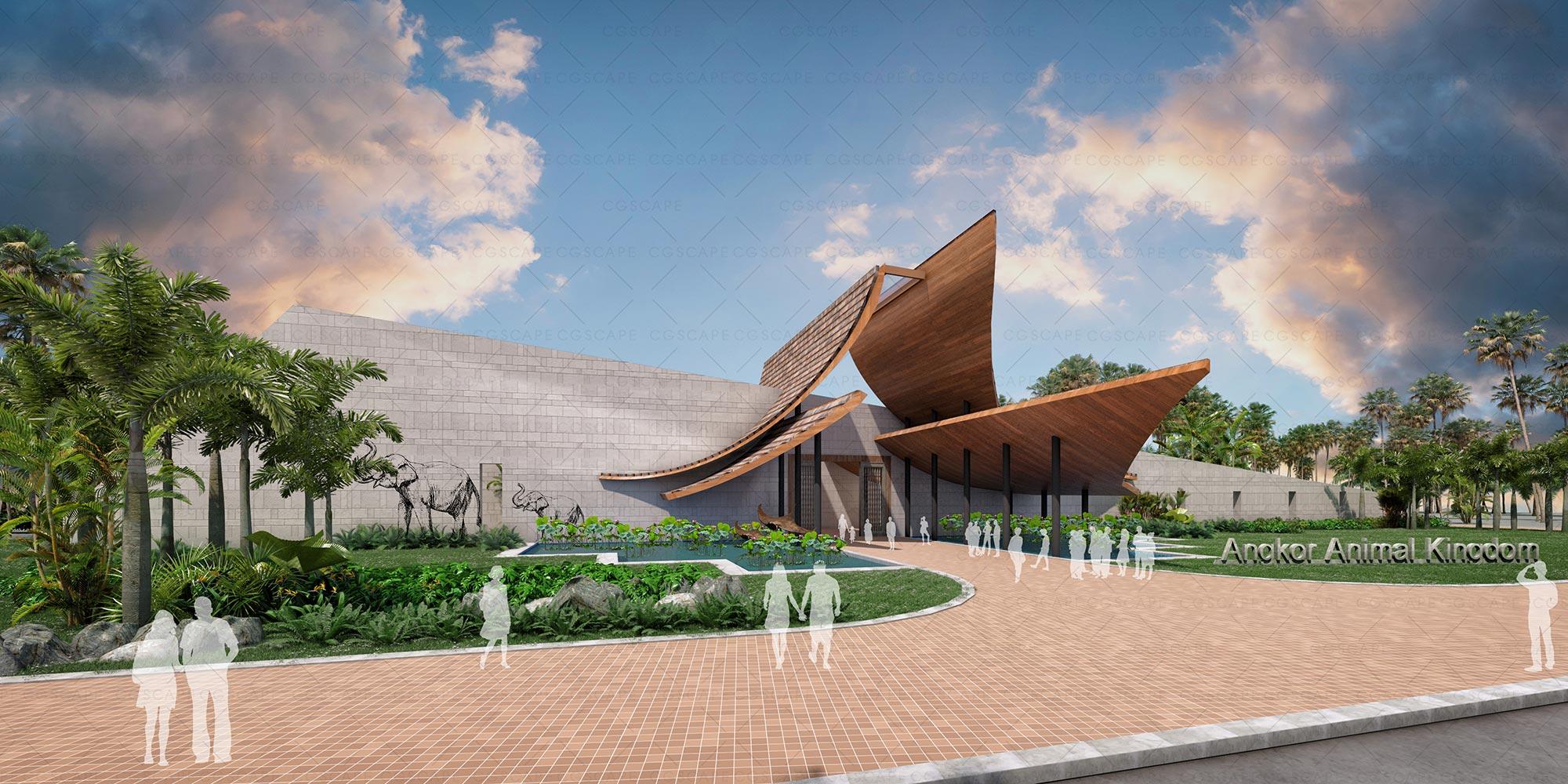It’s hard to overestimate the changes that Cambodia has undergone in the last thirty years. The country emerged from decades of conflict, foreign investment poured into the economy and more than 2.5 million people from around the world visit the ancient wonders of Angkor Wat every year. Mirroring this growth, LBL has evolved from a family business into a leading construction company that has set the standard in the sector and contributed to the development of the country.
With a reputation for quality, diligence and a commitment to customer satisfaction that continues to pay dividends, the firm is positioned to maintain its upward trajectory alongside the nation. For Jerome Luciani-Khao, LBL’s chief business development officer, this hard-earned reputation is key to the success of the company.
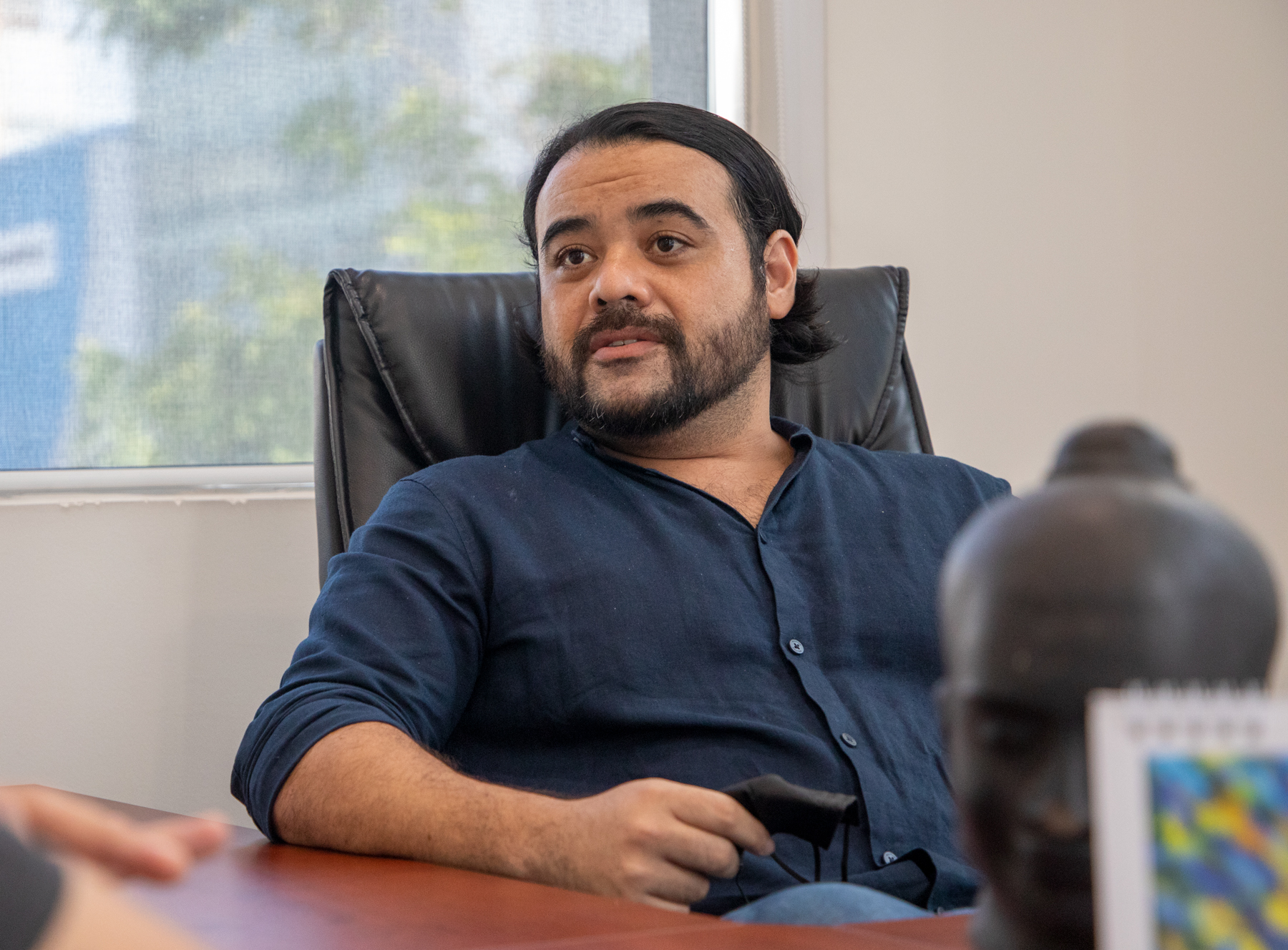
“Our clients are serious, they will not compromise their projects, even during a crisis,” he explained. “When they have a big project, an important project, they come to us because they know we are reliable and responsible.”
Along with a broader strategy that acknowledged the weight of the situation from the outset, Luciani-Khao believes that faith in the firm’s capacity and professionalism allowed LBL to successfully handle the Covid-19 crisis. While work was certainly scaled back, clients expected progress and LBL delivered, retaining all of its staff and continuing work on many key projects during the global pandemic.
When they have a big project, an important project, they come to us because they know we are reliable and responsible
Set to open in 2022, the Angkor Animal Kingdom and Aquarium is a prime example of the resilience and commitment of LBL’s team, especially during such trying times.
“The staff at LBL’s head office in Phnom Penh and the local team in Siem Reap were comprised of some very talented, cooperative and eager individuals,” said Roger Reynolds, founder of International Concept Management (ICM), the firm behind the project. “They accomplished some very challenging tasks.”
The wildlife park is spread across nearly 100 acres in Siem Reap and will be home to the largest saltwater aquarium in the country, as well as a floating market and a massive freshwater tank dedicated to the unique species of the Mekong ecosystem. But the project — one of dozens of ICM developments around the world — demonstrates another important trend that Luciani-Khao believes will contribute to LBL’s future in the country.
“Many of our clients are international developers and what they are doing here now, they have done it in Bangkok, in Hong Kong; they did it in Singapore,” he explained. “Now the opportunities for them are in Cambodia.”
Located metres from Wat Phnom on the capital’s iconic riverside, TRIBE hotel is a multi-use development from Accor Group, a French firm with projects in 110 countries around the globe. To create the multifunctional common areas, restaurants, bars and office spaces that provide guests with an inclusive experience, Accor’s partner for the project, Thai developer and management firm HMD Asia, felt that LBL was the only choice.
“We have worked with LBL before and they did a great job,” explained Sokoun Chanpreda, HMD Asia’s managing director. “They have a good track record and we trust their team. When they take on a contract, they are committed to doing it correctly.”
Along with the unique design and versatility that sets the project apart from other developments in the city, TRIBE also features an in-house water filtration system that minimizes plastic use and an open air common space that reduces annual energy consumption. Both of which serve as examples of LBL’s client-focused philosophy and commitment to expanding the skills and capacity of its team.
“We are always capable of meeting our clients’ needs,” explained Svay Angkeara, the firm’s chief technical officer. “If they want to incorporate green technologies or renewable energy, even if these are technologies we are not necessarily experts in, we will find specialists who can help us develop our internal resources.”
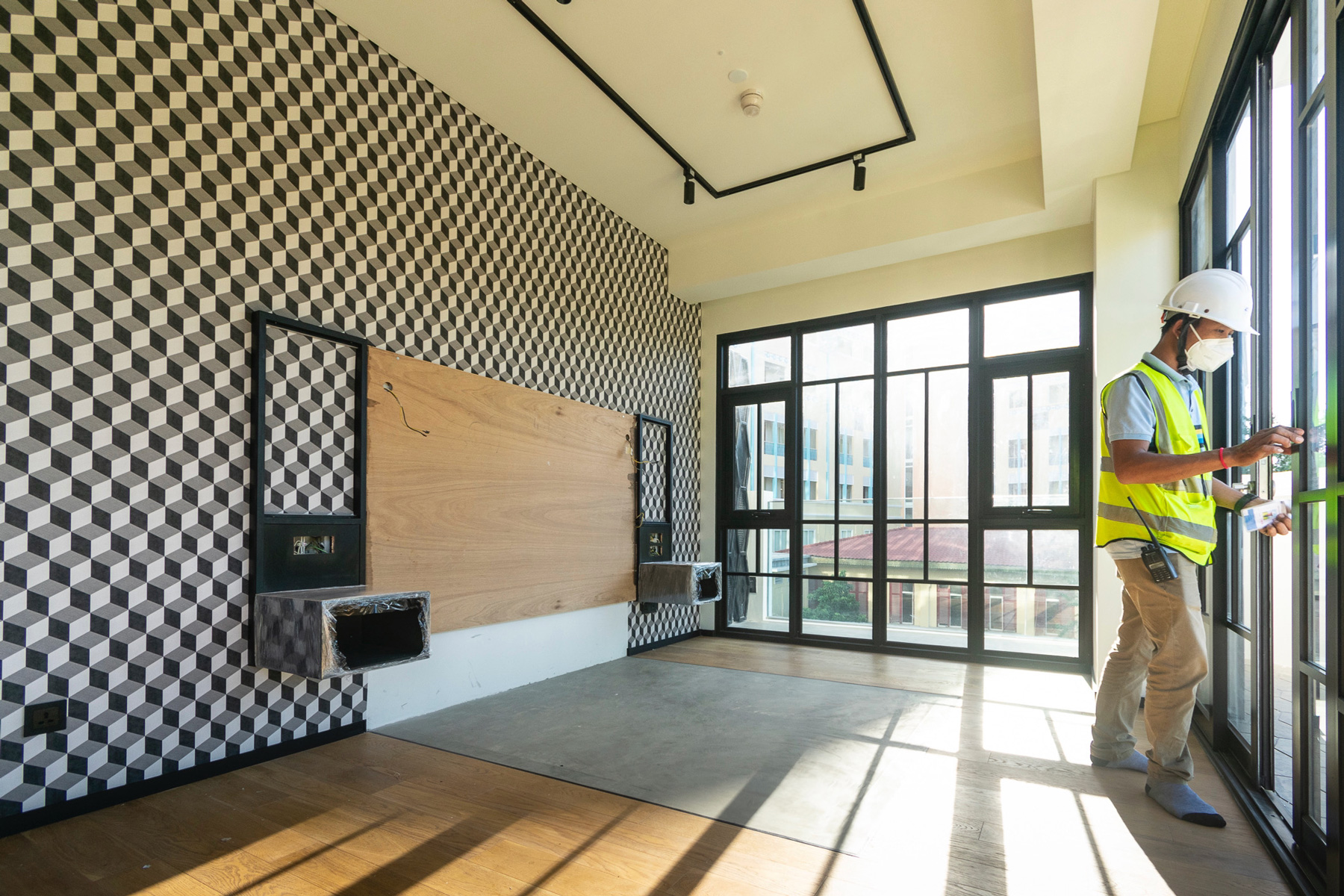
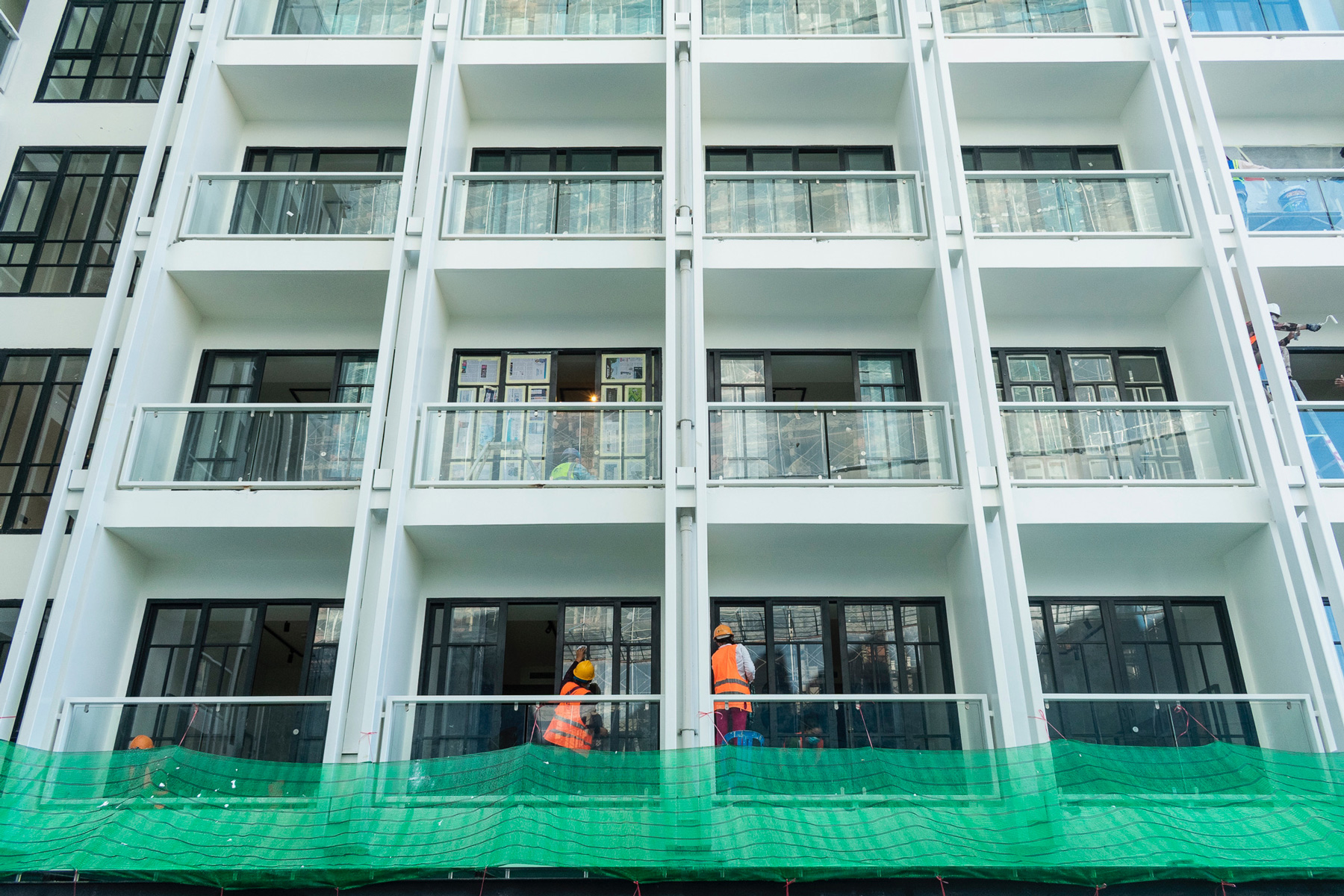
Responsible for the implementation and management of all technical aspects for LBL’s projects, Angkeara believes embracing technology is vital to the future of LBL. However, the firm is already taking advantage of innovative technologies to accomplish its goals. Building Information Modeling, known as BIM, is a suite of software tools that bring all information related to a project into a single, cloud-based platform that streamlines processes, reduces the margin of error and makes for a more efficient build. LBL’s embrace of BIM also demonstrates the firm’s broader enthusiasm for innovation in the sector.
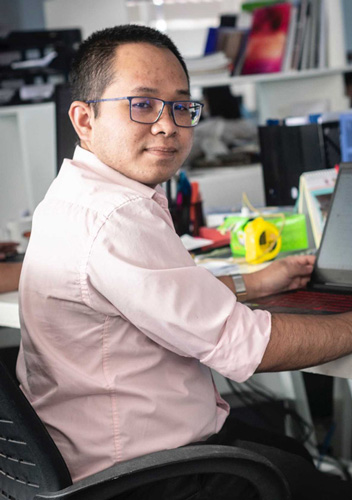
When it comes to technology, whether it is BIM, green technology or energy efficiency, everyone is interested
“When it comes to technology, whether it is BIM, green technology or energy efficiency, everyone is interested,” explained Angkeara. “We all want to integrate these types of technologies into our future construction projects.”
While BIM is certainly useful for all of LBL’s luxury hotel and condo projects, the technology takes on added weight when utilized for the type of large-scale industrial and infrastructure projects that Luciani-Khao believes will play an increasingly important role in the coming years.
“There will be more new infrastructure projects, like the new airport in Phnom Penh and the new airports in Siem Reap and in Sihanoukville,” he said. “With our experience working in airports since 1996 we have the capacity, we have the staff and we have the organisational structure to target these kinds of projects in the future.”
But Luciani-Khao’s confidence in LBL’s capabilities isn’t restricted to airports. The 2019 completion of a power plant in Sihanoukville demonstrates the firm’s ability to tackle new challenges and apply the standards and quality that it is known for at every opportunity. From vital infrastructure to environmentally conscious building practices and sustainable development, Luciani-Khao and his team are dedicated to a forward looking strategy that will carry the firm into the next 30 years.
“We will continue doing what we have always done. We will remain dedicated to our clients and provide high-quality work that is up to our precise standards,” he said. “But we will anticipate and adapt to what Cambodia will be in the future.”
It is in our DNA to provide quality and we bring that to all of our projects. This will not change.
Managing director Stephane Bigorre on Covid-19, “design & build” and the future of LBL in Cambodia.
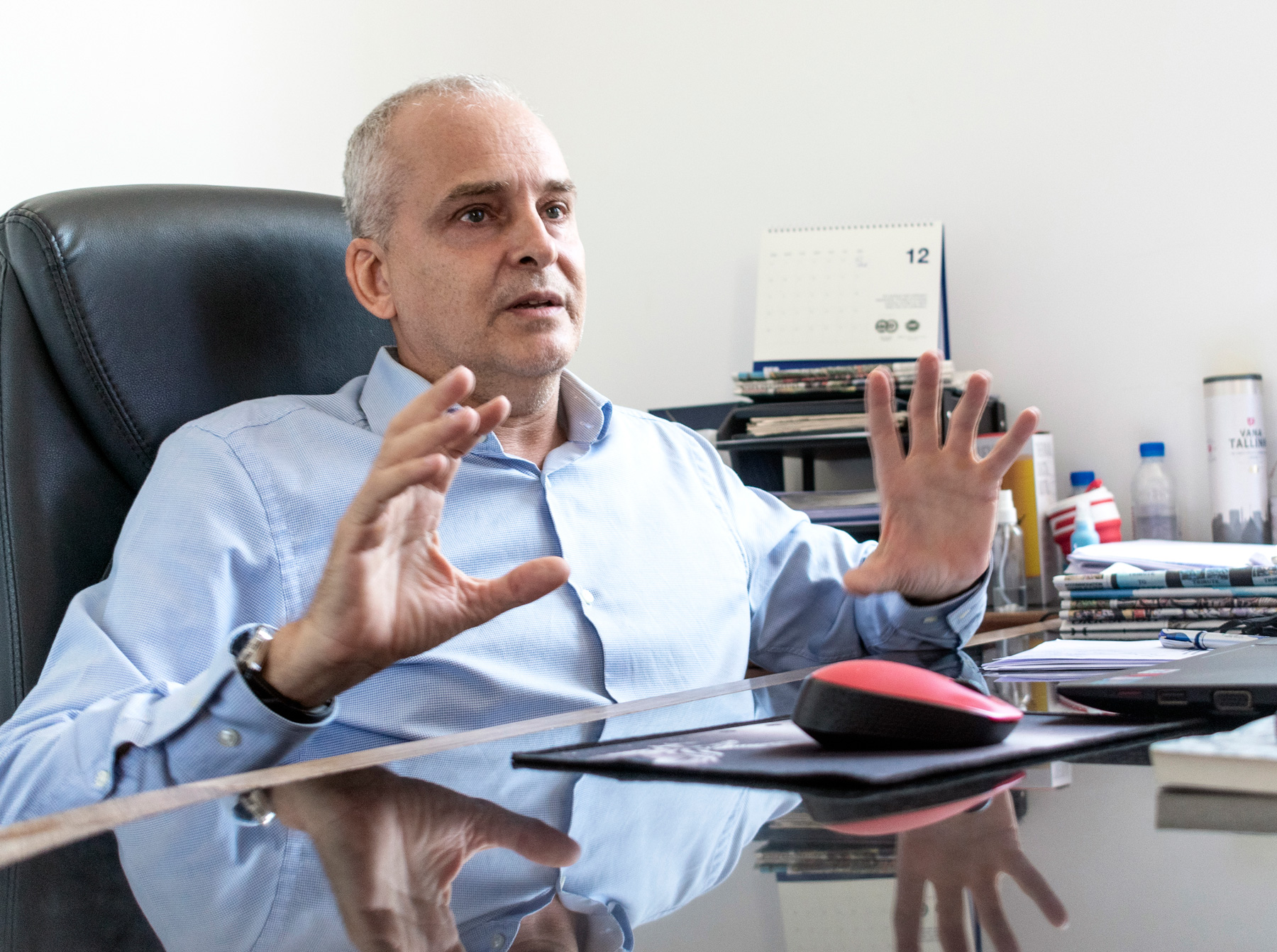
2021 marks LBL’s 30th year anniversary in Cambodia. What has allowed the firm to remain successful in such a competitive and fast-changing landscape?
LBL, since its inception, has focused on some very important traits: professionalism, quality and being customer-oriented. We make sure that whatever we are doing answers perfectly to the client’s requirements.
But we are still in a very competitive market so our “design & build” strategy opened up many more opportunities for us and reduced uncertainties that come with the tendering process. With this approach, we can work directly with our clients, even if they haven’t developed their full project yet. We can accompany them from the very early stages, help them develop the concept, create the design and then follow through with the construction.
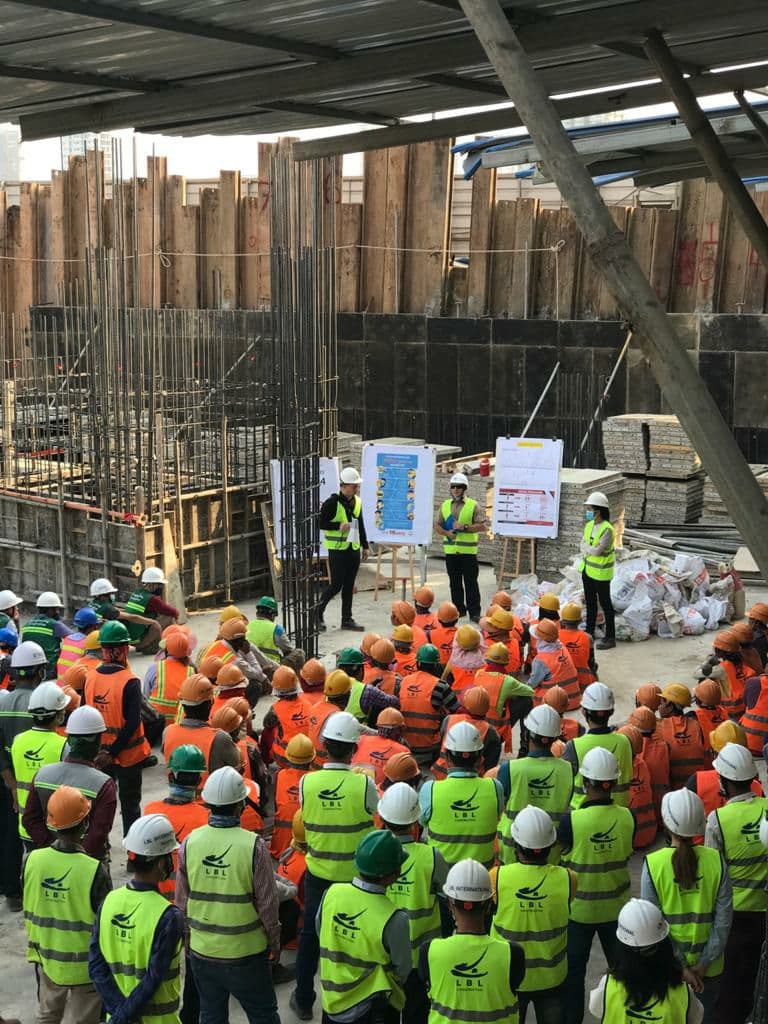
This definitely gives us an advantage over other companies that don’t have the in-house capacity for this strategy.
The Covid-19 pandemic will likely be regarded as the defining event of the last two years. How has LBL been affected by the global health crisis and how did your team respond?
The very first adverse effects were delays in supply chains. Even though Cambodia was spared at first, much of the materials we need for construction are procured from other countries, so immediately we had some impacts on our supply. We also work with experts from outside Cambodia, so restrictions on international travel were an obstacle for some of our projects.
But even before it affected us, we knew we had to prepare. We started using preventative measures and organizing awareness programs for all our staff on all job sites to explain the virus — what it is, how to prevent it — and preparing relevant internal policies, sometimes even before government regulations. By March 2021, our Covid-19 emergency response was ready.
The past three decades have seen Cambodia and LBL grow and change together. What does the future hold for the country and the firm?
It is in our DNA to provide quality and we bring that to all of our projects, whether it is luxury high-rise condos or private residences. This will not change.
But we know that at some stage the appetite and need for high-rise buildings will fade away, so we try to look ahead and prepare for the future. That’s why, personally, I think that at some point industrial construction will become much more prevalent. It happened in Thailand and Vietnam and it will happen in Cambodia as well. So whenever we come across opportunities in this sector we try very hard to gain these references that will help us later.
We can also see the potential of technologies, from BIM (Building Information Modeling) to solar and sustainable energy. LBL always follows the needs of our clients, so if someone wants a smart building, we will do everything necessary to make this happen. This is why, even if this is not the trend now, we are gearing up for new technologies and preparing for the future.
